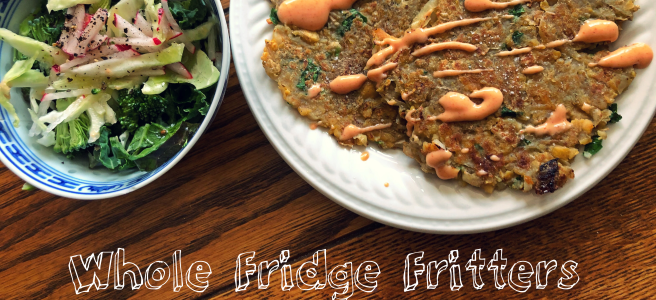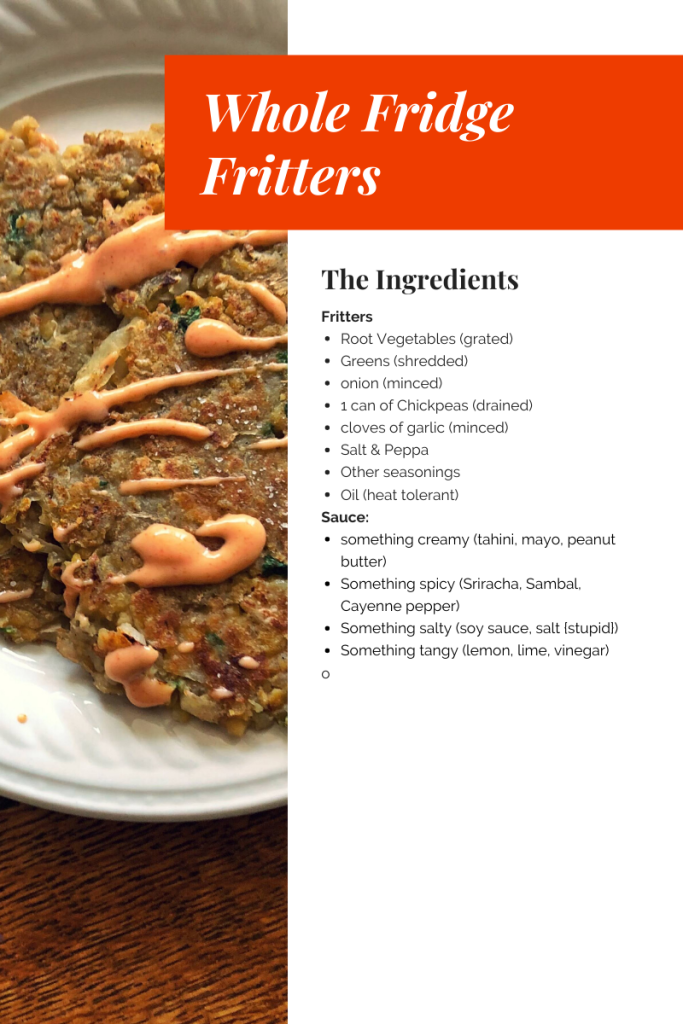
The Klimpton sat amidst a jumble of skyscrapers and old brick buildings. It was the former, a hastily but well researched substitute for what was supposed to be our last block of hostels. The hostels, one of them in particular, had taken a chunk out of us. Drum-skin walls and rusted bathtubs. Shifty eyes in the lobby and sewer fumes in the bathrooms. In our last hostel, the housekeeping staff had forgotten to replace our towels, so I’d popped down to the lobby for some new ones. With his jaw set and his eyes glassy and defiant, the person at the front desk handed me two hand towels that looked like they’d been (and I mean this without an ounce of hyperbole) run over by an actual motor vehicle. Holes. Treadmarks.

So we decided to treat ourselves the last two nights. Stepping into the lobby of that place, the difference was immediately, dizzyingly, apparent. The receptionist was extremely helpful and offered us an early check-in and a free beer. She didn’t look like she was fighting a losing battle with a quaalude addiction, nor did she have the shaky hands and haunted eyes of someone who had done unspeakable things for a Wendy’s Value Meal, which could not be said of the people who’d checked us into the last two hotels. We dumped our stuff in our lavishly appointed room (a microwave, ooh la la) and headed out into the French Quarter. Morning found me in a place called Mother’s. The Klimpton was many things, but it was not the kind of place that serves a complimentary breakfast. I housed a biscuit sandwich with eggs and baked ham. Ordered it deli style over a cracked tile floor amidst the weekday bustle and there was a punchy, New York sensibility about the place that left me feeling galvanized and accomplished for having acquired a meal with my dignity intact. The sandwich was decent and cheaper than the 20 dollar eggs benedict in the Klimpton lobby.

With that galvanizing accomplishment and a belly full of cheap-ish decency, I hit the streets. At the corner of Canal and Basin, I snagged a Blue-Bike from a rack at the curb, mounted the power assisted speed demon with the first inklings of a plan rattling around in my head. The day was cloudy. A cigar smoke sky hung out over the Mississippi, faintest hint of moisture in the chilly air, but I would not be dissuaded by poor weather. I was an adventurer. I lit off at a brisk pace for the Lafitte Greenway, the pedal assist whirring like a Tesla motor as I wove my way through Central Business District traffic, then in a rush of profound silence, like a rocket breaking atmosphere, I hit the greenway. Tall grass, swamp water, creatures in their various states of predation and prey, nonplussed by the docile hum of my borrowed bicycle. I followed the Greenway to an aqueduct, rode along that, stealing glances at that soupy sky reflected in the still waters of Bayou St. John like an impressionist painting about a boy who would soon be ravaged by rain, but was not intuitive enough to know it. The aqueduct deposited me at the New Orleans City Park. The park was a sprawling, labyrinthian marvel of civil engineering, no less impressive to me than Central Park in New York.
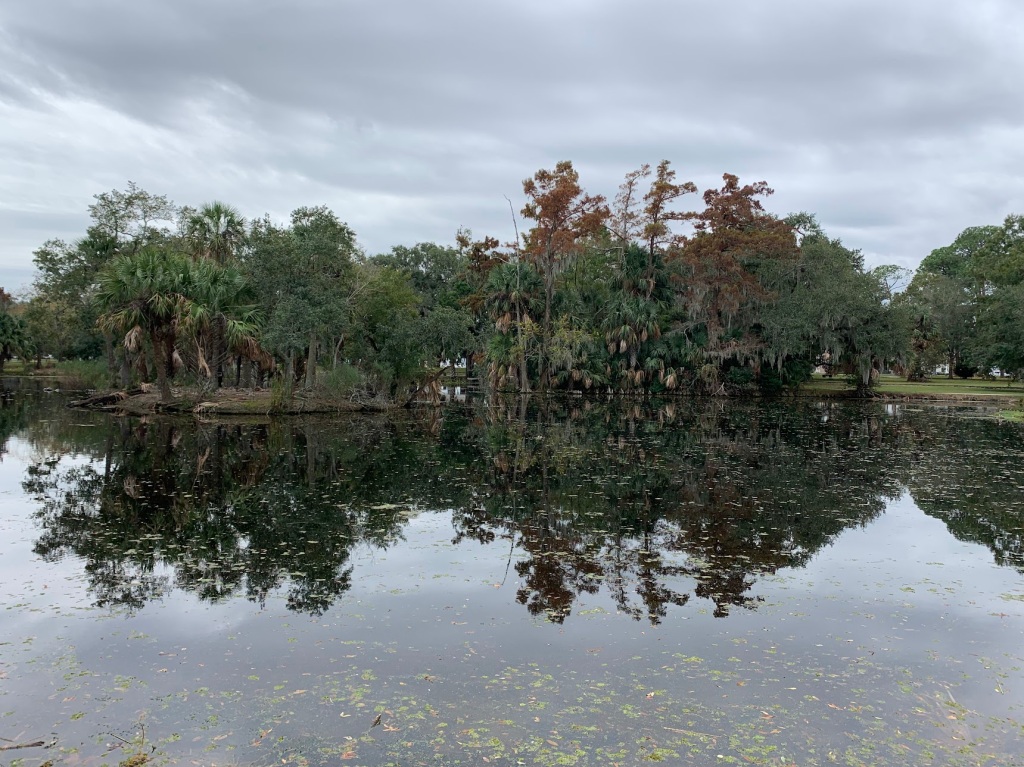
I parked my Blue-Bike, (which ended up costing me exactly zero dollars and zero cents due to a first-time-use promotional code) at a rack near the southern entrance to the park and continued my adventure on foot. The swapland was captivating. Turtles disappearing into murky water, herons wading with their dagger beaks between the reeds, and the moss and the trees and the sky thick and smoky to the sound of my boots on the gravelly paths and the clicking, whooping, whistling chorus of frog and crickets. After 15 or 20 minutes of aimless wandering, I rounded a bend in the path and stumbled out into the seating area of a Cafe Du Monde, like it was a mirage in my personal desert. Glassy-eyed, I wandered to the totally empty counter and ordered beignets and chicory coffee because New Orleans municipal code requires you to do so and I’m way too pretty for jail.
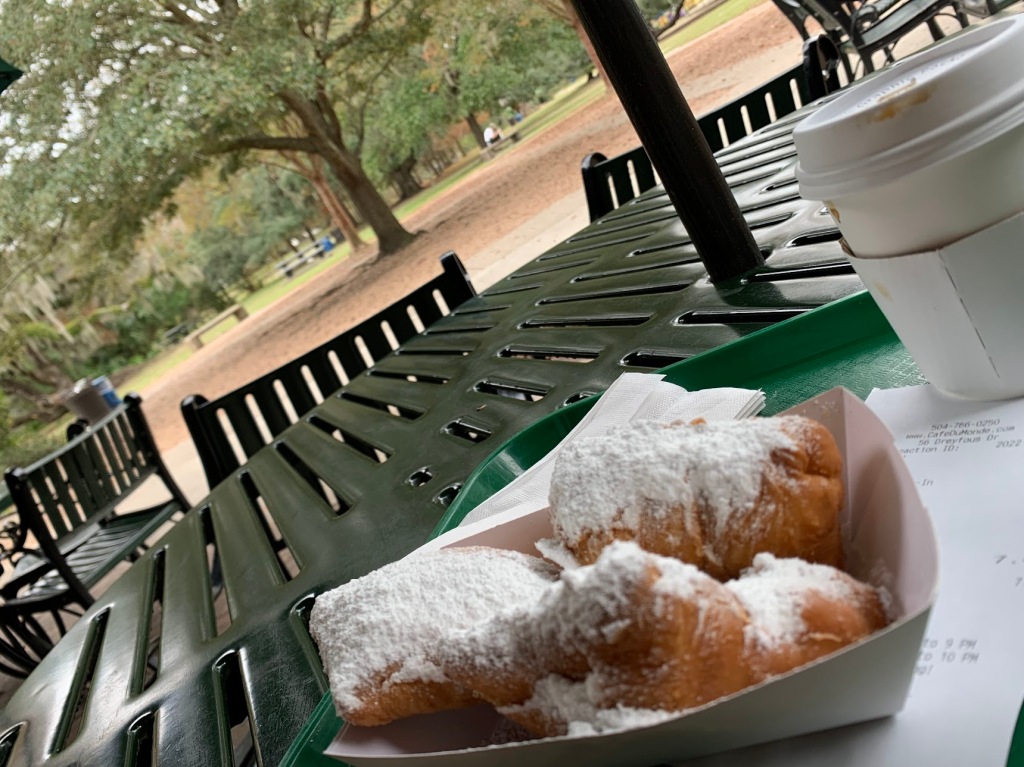
They brought them out to me and I sat a plastic table beneath an oak tree and luxuriated in the majesty that had befallen me. That bold, nutty, coffee, bitterly offsetting the straight out of the fryer, too-hot-too-hold, too-good-too-put-down goodness of those beignets on a blustery day in a swampy park where anything was possible. When I was finally done I looked like Scarface had just sneezed in my lap and the coffee and sugar had turned my blood in to rocket fuel, so I re-mounted my bicycle, punched it through the guts of City Park, around the museum, through the main roadway, circling the many sports complexes and playgrounds. It was a really well thought-out park, and clearly a community favorite. Every inch of it was in use, even midday, even on a weekday
…even at the onset of a thunderstorm.
A drizzle had started to fall on the park and by the time I realized what was happening it was too late and I was proper fucked, no two ways about it. I swung by a Whole Foods on the way home, picked up some snacks for the train and when I shouldered my way back through the doors, it was raining with a capital “R”. I made my way back to Basin and Canal in the downpour, feeling the rolling rattle of thunder as it rippled its way through the gothic sky, dumped my bike in the same rack from which I’d acquired it and made my back to the Klimpton, soaked to the bone.
I don’t think I stopped smiling for a moment, climbing into those dry clothes in our overly posh hotel, such are the side-effects of adventure on the adventurous.
The storm that had settled over city park had come and swung and said it’s peace and had passed and when we wandered out onto the street after nightfall, a fog had landed in its place.

We wandered down to the edge of the Mississippi. A haze hung over it, ferry boats cutting through it slow and eerie, running lights blinking and the lap of water on the hull and a nip in the air like in ghost stories. Then we doddled through shops looking for gifts to bring home. In a square in the French Quarter, a man with two bullhorns, two bullhorns, expelled a constant stream of Biblical nonsense to the pleasure and enjoyment of absolutely noone, getting loosey-goosey with the verses, saying,
“And the lord said, and I quote, ‘y’all can’t do NOTHING without me.’”
Not sure which book that’s in. One of the more conversational one’s I guess.
We had dinner at a place called “Tsunami Sushi”, a hip little sushi joint that was a quick walk from the hotel. When we pushed through the door, the hostess took our name and my phone number. She seemed confused when she did it, writing it in her little check-in book. Her confusion made sense, because she seated us immediately, but we all shrugged it off, parted ways. I ordered a roll that contained alligator meat because I can’t be restrained by the rules of man.
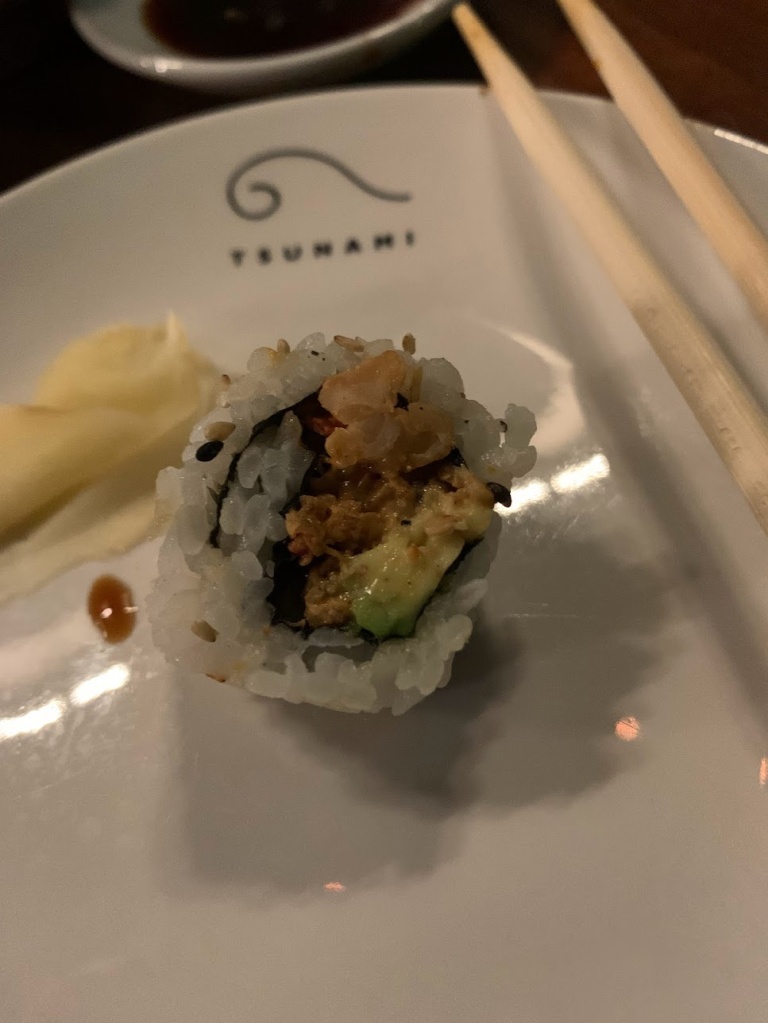
The food was unusual and satisfying and we marched home with full bellies in that ghoulish fog and when we got back to our room and were about to start the process of settling in to close our final night in New Orleans, the city hit us with a final piece of pleasant weirdness. My phone rang on the nightstand, unknown number Louisiana area code.
“Hello?”
“Um, yes, Kellen?”
“Yes?”
“Um, hi, this is Tsunami Sushi. You left your credit card at the table.”
And as I made my way back to the restaurant, replaying the look of confused certainty on the hostesses face as she inexplicably wrote down the phone number of a man that she intended to seat immediately, I couldn’t help by laugh to myself, thinking about my first night in town at the Sylvain. Thinking, “if the city likes you, it will be good to you.”


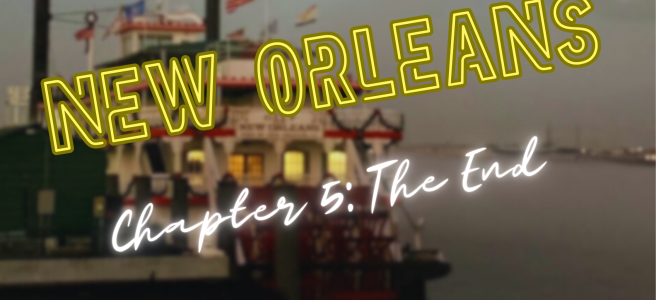








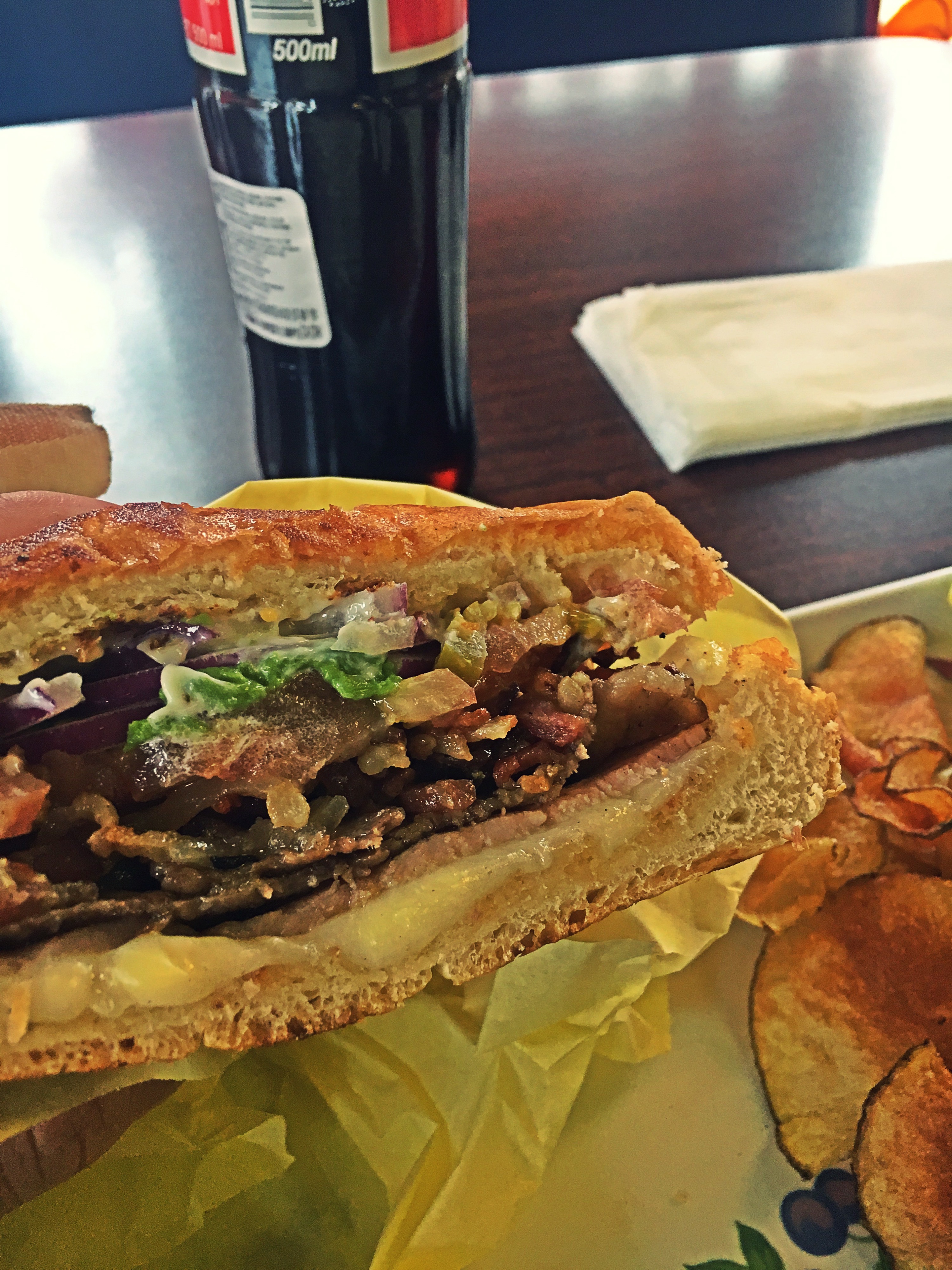

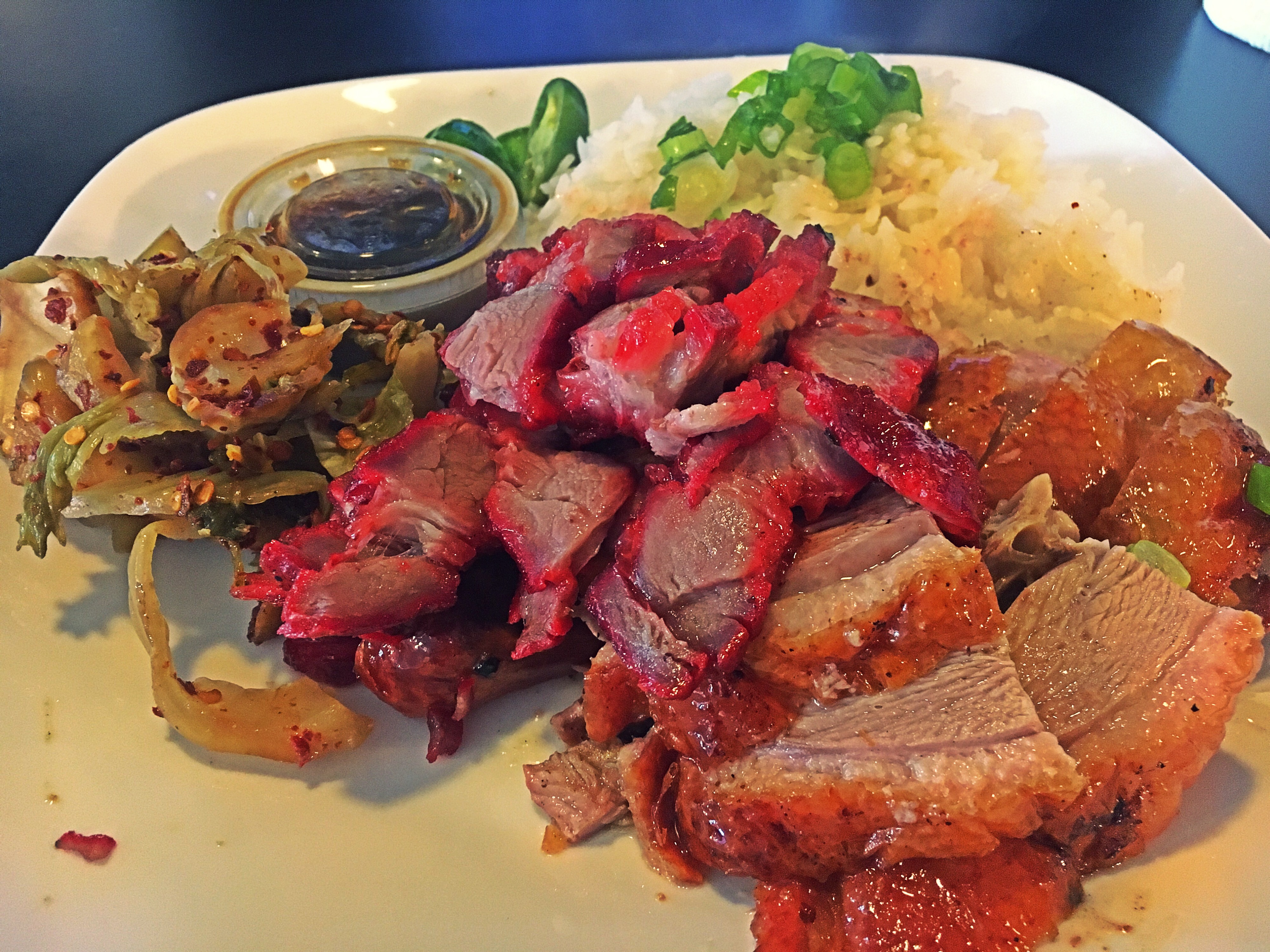
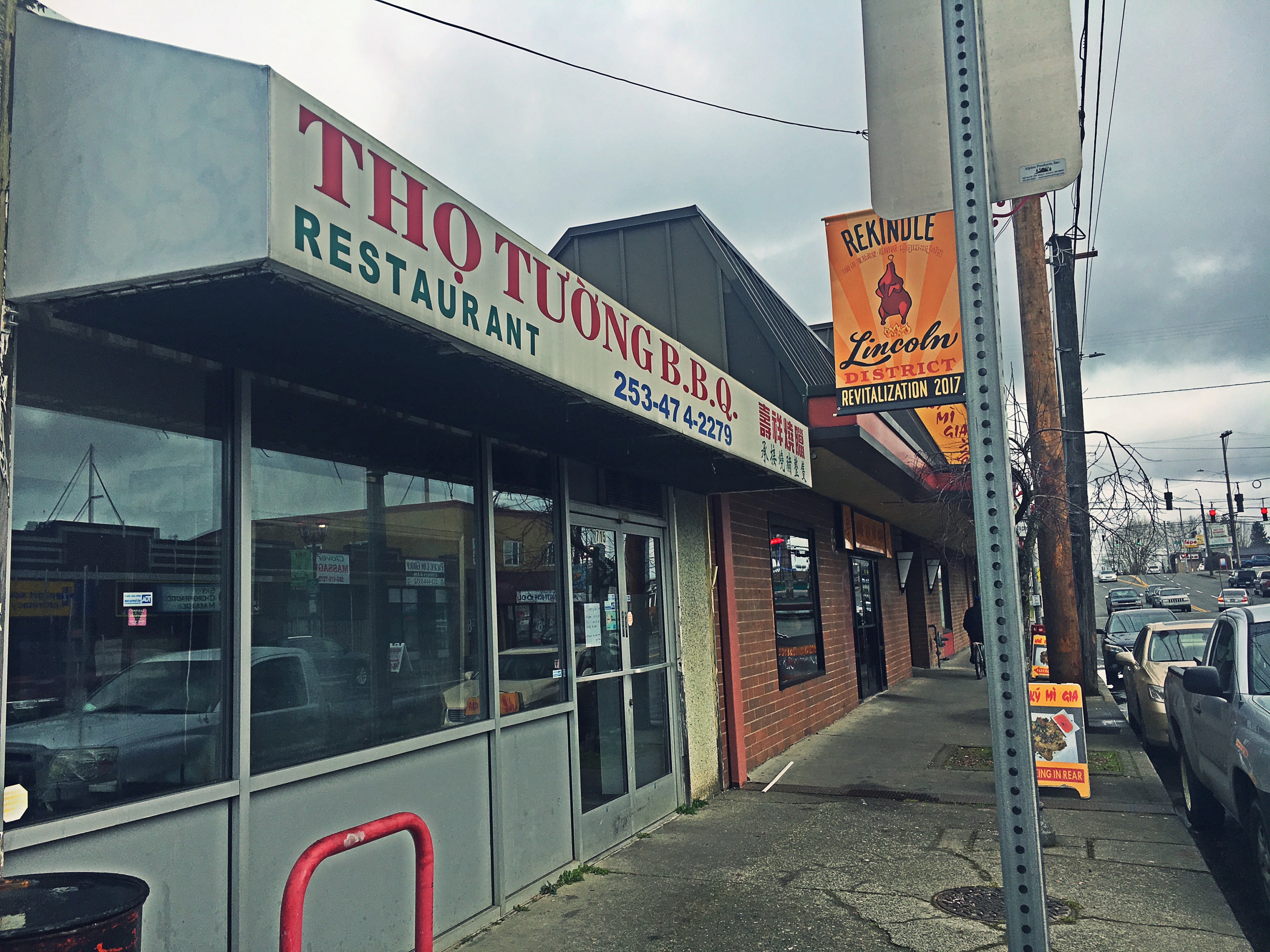








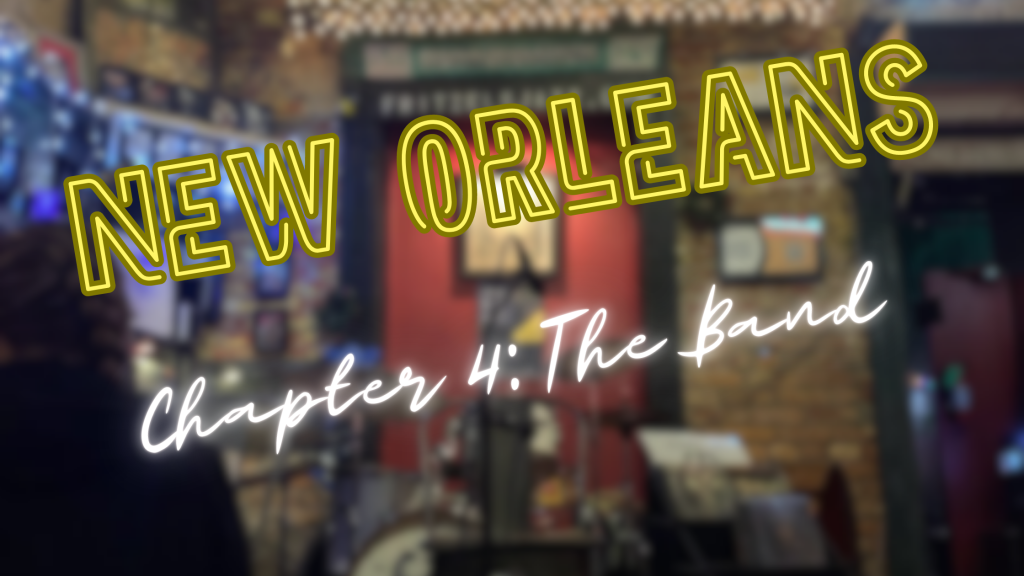

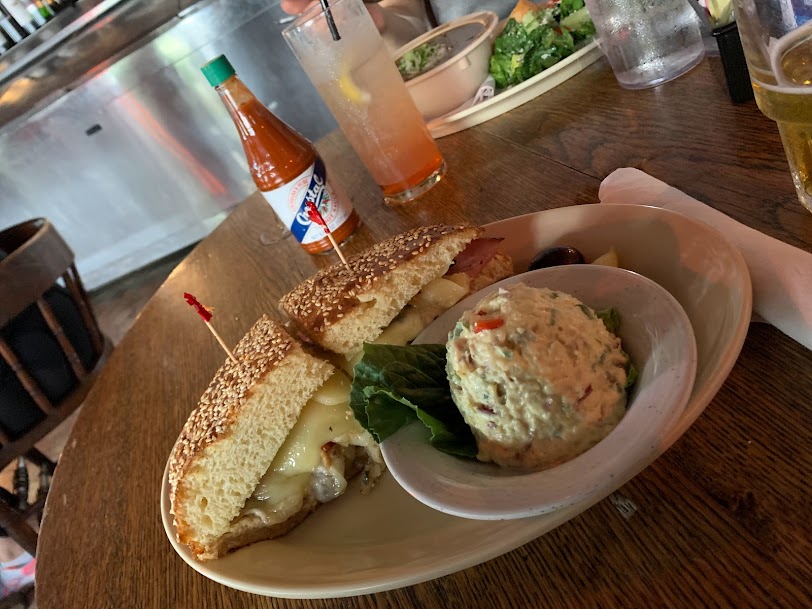




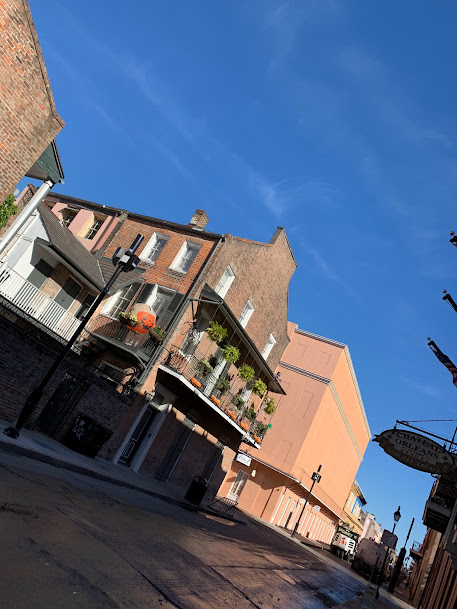















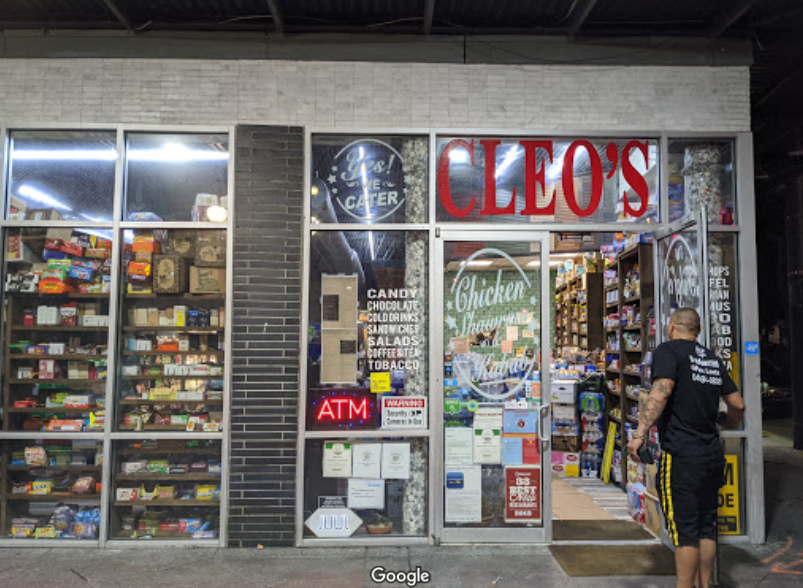

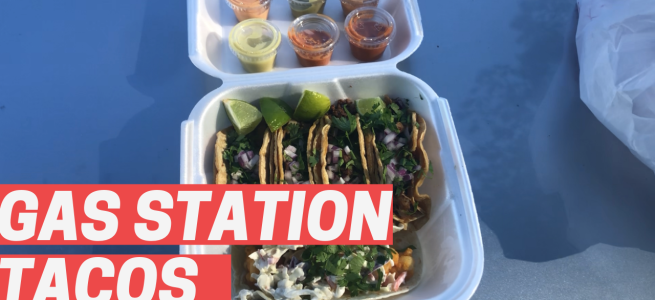
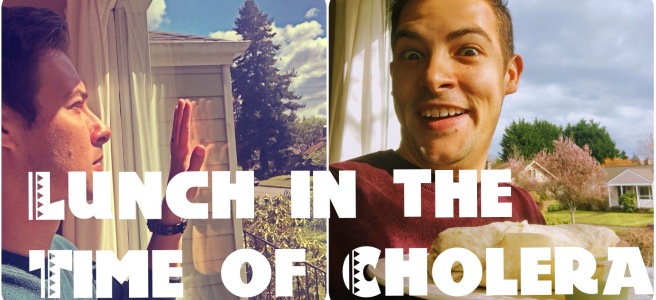
![[video-to-gif output image]](https://im6.ezgif.com/tmp/ezgif-6-ae9a58cfe819.gif)














